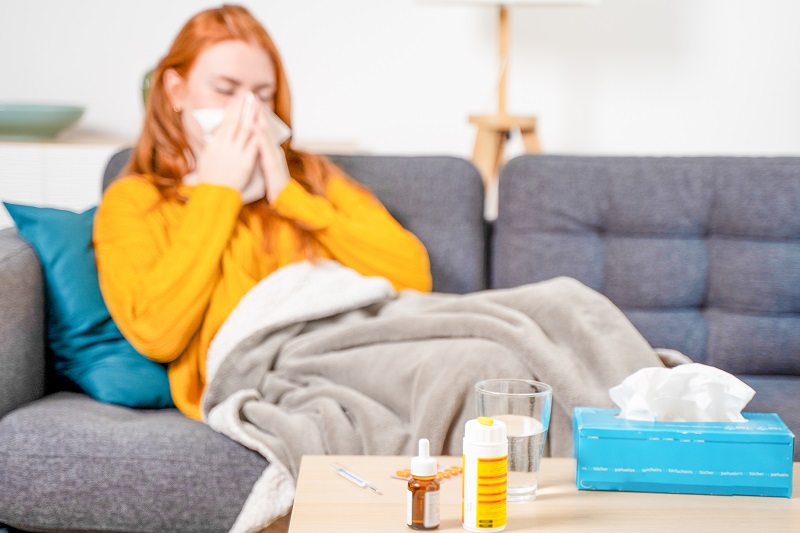Our Doctor’s Home Remedy for Seasonal Flu

January 30, 2023
Since the start of COVID-19, our focus has been on the pandemic and infectious disease spread. But the common cold and seasonal flu remain common concerns.
Our expert, Satish Tadepalli, M.D., a primary care doctor in Toms River, New Jersey, offers six ways to take care of yourself at home if you have the seasonal flu.
- Use over-the-counter pain relievers to manage fever. Dr. Tadepalli recommends taking acetaminophen to manage a fever. He advises caution if using nonsteroidal anti-inflammatory drugs, specially for anyone with gastrointestinal issues or on blood thinners, as these drugs can cause an increase in bleeding. If a high fever—greater than 101.4 degrees—is unmanageable with acetaminophen, you should see a doctor right away.
- Up your vitamin intake. “Vitamin C is helpful every day but especially helpful when it comes to respiratory tract infections,” Dr. Tadepalli says. “But if you can eat fresh fruits and vegetables, that's much better than taking vitamin supplements.” Elderberry syrup can also boost immunity.
- Drink plenty of water. Most adults need two to three liters of water a day. But Dr. Tadepalli advises that other health concerns, such as heart failure or kidney problems, can change the amount of water needed, so you should talk with your doctor.
- Get plenty of rest. “I don't recommend exercising when you are sick with the flu because the body uses a lot of energy to fight the infection,” Dr. Tadepalli says. In the case of a person who has no serious health issues, exercise during a mild cold is fine. But in a serious infection, even the healthiest people can feel drained and should rest.
- Reduce flu spread in your home. Dr. Tadepalli also advises patients to disinfect commonly touched surfaces and isolate from others in the household.
When to See the Doctor for Seasonal Flu
It’s time to see a doctor when:
- Home remedies and over-the-counter medications are not keeping fever or chills from worsening
- You are unable to remain hydrated and are getting weaker
- Symptoms last more than the usual five to seven days, a doctor should be seen.
For elderly people, a doctor should be consulted if there’s difficulty staying hydrated, if they behave in a confused way or if oxygen saturation drops below 90. You can measure oxygen saturation at home with a portable finger pulse oximeter, or watch for signs of low oxygen levels—a rapid heart rate and a fast breathing rate.
Next Steps & Resources:
- Meet our source: Satish Tadepalli, M.D.
- To make an appointment with a primary care doctor near you, call 800-822-8905 or visit our website.
The material provided through HealthU is intended to be used as general information only and should not replace the advice of your physician. Always consult your physician for individual care.






